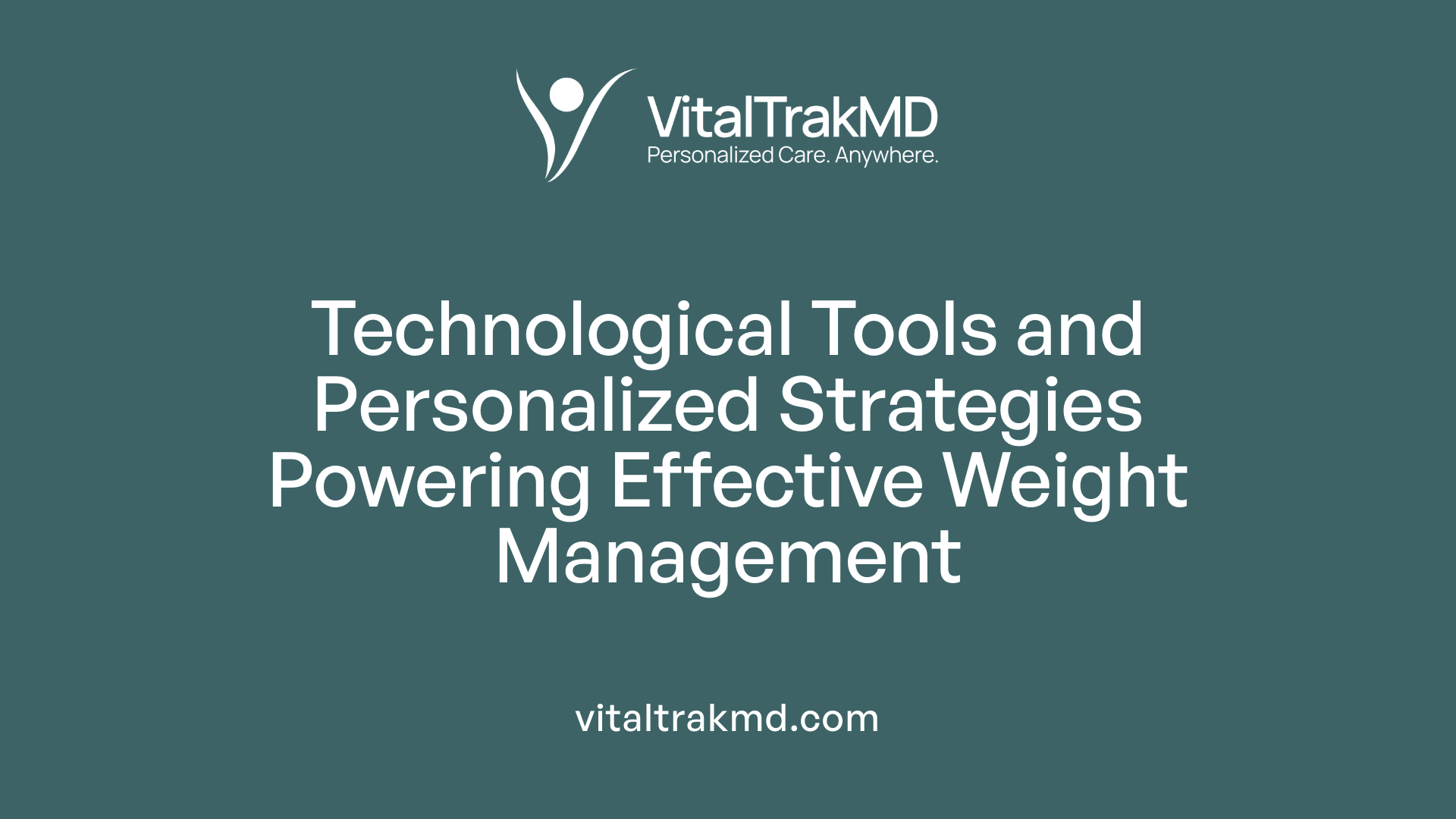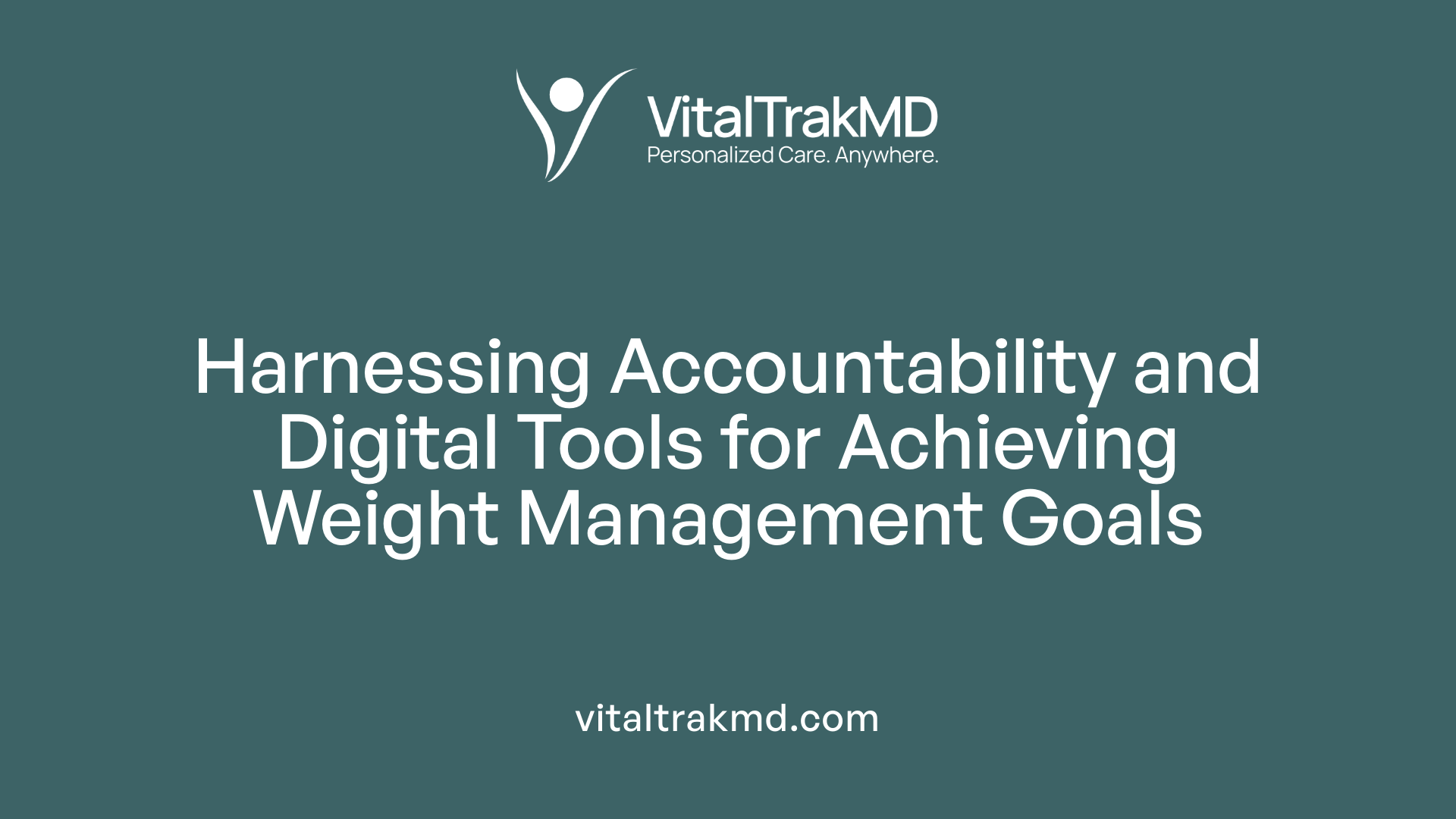Weight Loss Success: Virtual Nutrition + In-Home Accountability

Innovative Approaches to Achieve Sustainable Weight Management
In recent years, the integration of virtual nutrition guidance with in-home accountability strategies has revolutionized weight loss approaches. By combining technology-driven self-monitoring tools with personalized coaching and support systems, individuals can better adhere to their health goals. This article explores the components, benefits, and effectiveness of these programs, emphasizing how they foster sustainable habits and long-term success.
Understanding Components and Functions of Virtual and In-Home Programs
 Virtual nutrition and in-home accountability programs are designed to support weight loss success by integrating various technological tools and personalized strategies.
Virtual nutrition and in-home accountability programs are designed to support weight loss success by integrating various technological tools and personalized strategies.
One of the core components is digital self-monitoring tools. These include smartphone apps, wearable devices, and electronic scales that allow users to track food intake, physical activity, and weight regularly. Features like barcode scanners, photo food tracking, and real-time feedback help users stay aware of their habits and make healthier choices.
Another essential element is personalized nutrition plans. These tailor meal suggestions and macro tracking to fit individual goals, lifestyles, and preferences. Programs such as those offered by Metabolic Research Center or Sheri Goodman Graham emphasize bespoke menu plans, guiding clients to develop sustainable eating habits without feeling deprived.
Remote coaching support is also pivotal. Licensed dietitians or fitness experts provide virtual check-ins via video, phone, or messaging platforms. This ongoing guidance fosters motivation, accountability, and technical education, ensuring clients stay on track even outside clinic settings. Studies indicate that regular feedback from coaches significantly enhances weight loss outcomes and reduces dropout rates.
Behavior change techniques underpin these programs' success. These include goal setting using SMART criteria, visualizations, and commitment contracts, which increase the likelihood of achieving daily targets. Sharing logs with accountability partners or trainers boosts transparency and commitment, with research showing participants are more likely to maintain progress when supported by a community.
In summary, virtual and in-home weight loss plans combine technological tracking, tailored nutritional guidance, consistent professional coaching, and effective behavior strategies. This integrated approach promotes sustainable lifestyle changes, making weight management accessible and effective regardless of location.
Enhancing Weight Management with Virtual Coaching and Remote Support
 Virtual coaching and remote support are transforming how individuals approach weight management, making it more accessible and personalized. These methods offer tailored guidance that fits an individual's specific needs, preferences, and lifestyle. For example, programs like those offered by Teladoc provide customized meal plans, nutrition advice, and behavioral strategies through online consultation, ensuring clients receive expert support from anywhere.
Virtual coaching and remote support are transforming how individuals approach weight management, making it more accessible and personalized. These methods offer tailored guidance that fits an individual's specific needs, preferences, and lifestyle. For example, programs like those offered by Teladoc provide customized meal plans, nutrition advice, and behavioral strategies through online consultation, ensuring clients receive expert support from anywhere.
Ongoing motivation is a core advantage of remote support systems. Regular check-ins, digital progress tracking, and instant feedback from health professionals help maintain engagement. Tools like smart scales, mobile apps, and digital journals enable users to monitor their food intake, weight, and physical activity consistently. These devices sync data in real-time, allowing coaches to make timely recommendations and adjustments, keeping motivation high and discouraging slackening.
Behavioral reinforcement plays a crucial role in sustained weight management. Digital platforms and apps encourage accountability by providing structured goals such as calorie limits, step counts, or macronutrient targets. Sharing progress logs with coaches or accountability partners further boosts commitment, as individuals are more likely to stay on track when their efforts are transparent and supported.
Research indicates that remote and virtual coaching programs can be as effective as face-to-face interventions. For instance, a two-year study published in the New England Journal of Medicine found that individuals receiving remote guidance lost about 10 pounds on average, significantly exceeding self-directed efforts. The convenience of online support allows users to overcome common barriers like scheduling conflicts and geographical limitations, ultimately leading to better adherence and long-term success.
In essence, digital tools combined with professional support create a comprehensive approach that enhances motivation, tracks progress efficiently, and reinforces positive behaviors. This integrated system represents an innovative and adaptable way to achieve and maintain healthy weight goals.
Effective Strategies and Tools Supporting Weight Loss

What are effective strategies, tools, and practices that support weight loss through virtual and in-home accountability approaches?
Supporting weight loss effectively involves a mix of digital tools, professional guidance, and social support mechanisms. Digital monitoring devices like wearable fitness trackers and smartphone apps play a crucial role in keeping individuals accountable. These tools allow users to track their physical activity, food intake, and weight regularly, providing real-time feedback and reducing barriers to self-monitoring.
Virtual coaching sessions are another valuable resource. They enable personalized interactions with health professionals, offering tailored guidance, setting achievable goals, and conducting frequent check-ins. This professional oversight helps maintain motivation and accountability, even remotely.
Community support is also vital. Online groups, social networks, or accountability partners create a sense of shared purpose. Studies show that sharing progress and challenges within a community increases motivation, adherence, and success rates.
In addition, flexible and accessible resources like on-demand workouts, virtual nutrition consultations, and personalized meal plans support sustainable lifestyle changes. These options make it easier for individuals to incorporate healthy habits into busy schedules, whether at home or on the go.
Combining these elements—digital tools, professional support, and social accountability—forms a comprehensive approach to virtual and in-home weight management. Such a strategy enhances motivation, improves adherence, and increases the likelihood of long-term success.
Benefits and Effectiveness of Combining Virtual Guidance with In-Home Strategies
What benefits and effectiveness are associated with combining virtual nutritional guidance with in-home accountability strategies?
Combining virtual nutrition coaching with in-home accountability methods offers several notable advantages. One of the primary benefits is increased accessibility and convenience. Clients can participate in personalized support sessions without the need to travel, making it easier to stick to regular check-ins and guidance regardless of their location. This flexibility helps maintain consistent engagement, which is crucial for long-term success.
Virtual coaching also allows dietitians and health professionals to directly observe and assess a client's food environment. This insight enables tailored, practical recommendations based on the client’s actual settings and routines, enhancing adherence to dietary plans. For example, professionals can guide clients on managing their kitchen at home, controlling portion sizes, or structuring their food environment to support healthy choices.
Furthermore, the integration of digital tools—such as apps, messaging, and video calls—facilitates continuous communication. Clients receive prompt feedback, motivational support, and plan adjustments, which can boost motivation and accountability. Regular virtual interactions help reinforce behavioral changes and address challenges in real-time.
The combined approach leverages behavioral and environmental cues, including routine check-ins and monitoring, to foster sustainable habits. This synthesis of technology and environment-focused strategies often results in improved health outcomes and weight loss success. Studies indicate that such multi-faceted support enhances adherence, sustains motivation, and increases the likelihood of long-term weight management.
Overall, integrating virtual guidance with at-home accountability strategies creates a comprehensive, flexible, and effective framework for achieving health goals. It combines the advantages of digital technology with environmental modifications, promoting durable behavioral change and better nutrition.
The Central Role of Accountability Methods and Digital Tools in Weight Loss Success

What role do accountability methods and tools play in achieving and maintaining weight loss goals?
Accountability techniques are essential for helping individuals stick to their weight loss plans and reach their goals. They work by providing structure, support, and motivation through various means such as social networks, professional guidance, and technology.
One of the most effective strategies is self-monitoring. This includes tracking food intake, physical activity, and weight changes regularly using apps, diaries, or journal entries. Research shows that people who journal their food six days a week tend to lose twice as much weight as those who do less frequent tracking.
Attaching accountability partners, whether friends, family, or online communities, significantly boosts success rates. Studies reveal that individuals with accountability partners are three times more likely to achieve their weight loss goals, partly because sharing logs and progress increases transparency and motivation.
Goal setting plays a critical role as well. Using specific, measurable, achievable, relevant, and time-bound (SMART) criteria helps in creating concrete plans. Regular check-ins with coaches or health professionals allow for personalized feedback and adjustments, which enhances adherence.
Technology-assisted feedback involves using smartphone apps, wearable devices, and virtual coaching programs. These tools provide real-time insights, reminders, and encouragement, making ongoing engagement easier. For example, e-scales sync weight data for precise tracking, while apps like Valley Medical Weight Loss connect users to personalized meal plans, exercise guidance, and motivational support.
Combining behavioral methods with digital tools and community support creates a comprehensive approach that sustains motivation and accountability. Such multi-component strategies not only facilitate initial weight loss but also help in long-term maintenance.
In summary, accountability methods and tools reinforce responsible behavior, improve adherence, and provide valuable feedback, ultimately increasing the chances of successful and sustained weight management.
Harnessing Technology and Support for Lifelong Success in Weight Management
Integrating virtual nutrition guidance with in-home accountability strategies creates a comprehensive, accessible, and personalized approach to weight management. The combination of digital tools for self-monitoring, professional remote coaching, and social accountability mechanisms helps reinforce healthy behaviors, sustain motivation, and address barriers effectively. Evidence demonstrates that such integrated programs lead to higher adherence rates, better weight loss outcomes, and improved long-term health. Embracing these innovative strategies offers individuals a sustainable path to achieving and maintaining their desired weight and overall wellness, empowering them for lifelong success.
References
- The Power of Accountability in Weight Loss - Lose It!
- At Home Coaching Adds Weight Loss Accountability
- Fitness Apps: Your Virtual Accountability Partner -
- Accountability and Weight Loss
- Accountability Helps You Achieve Weight Loss Goals
- Daily Accountability Program - Nutrition Awareness
- Boost Your Weight Loss with Accountability - Welling - AI
- Is an Online Weight-Loss Coach Worth It for Accountability?
Recent articles
Want to Feel Better and Live Healthier?
Join hundreds of patients taking control of their health with personalized care that fits their life – not the other way around.
Rated 4.8/5 by 32+ customers







